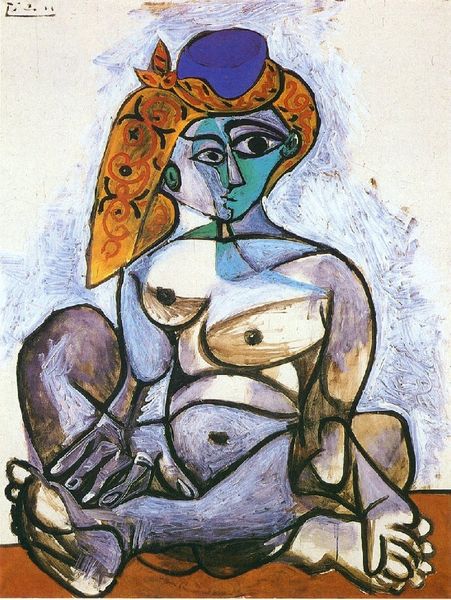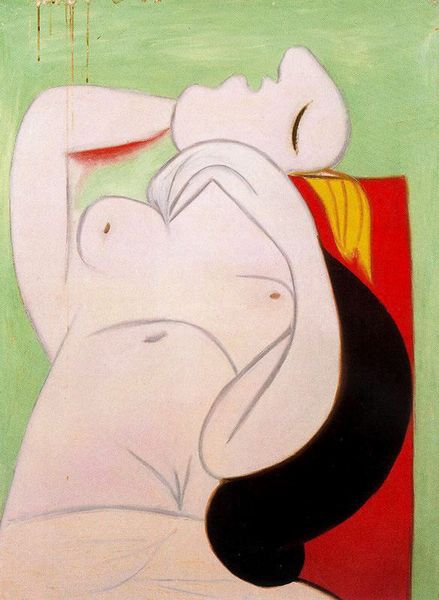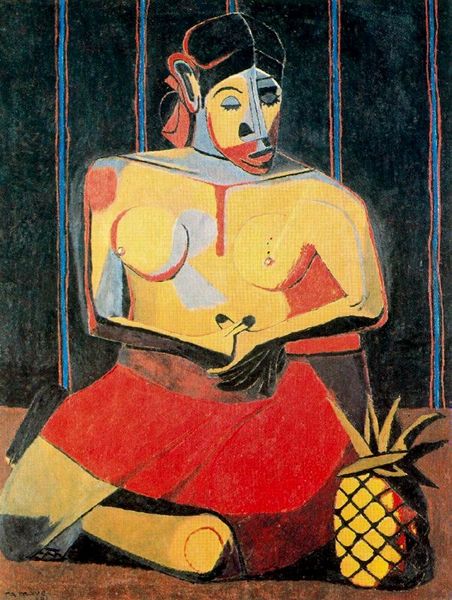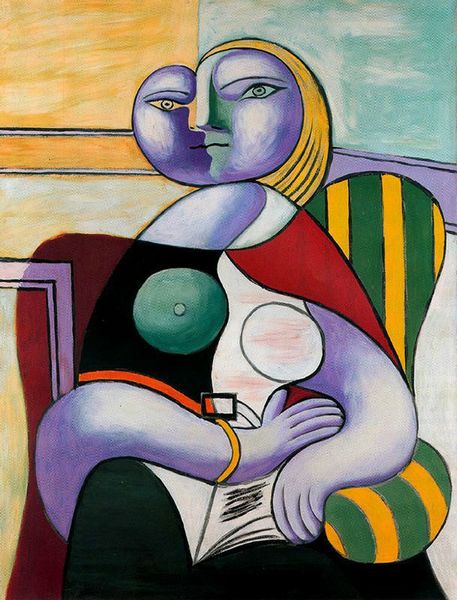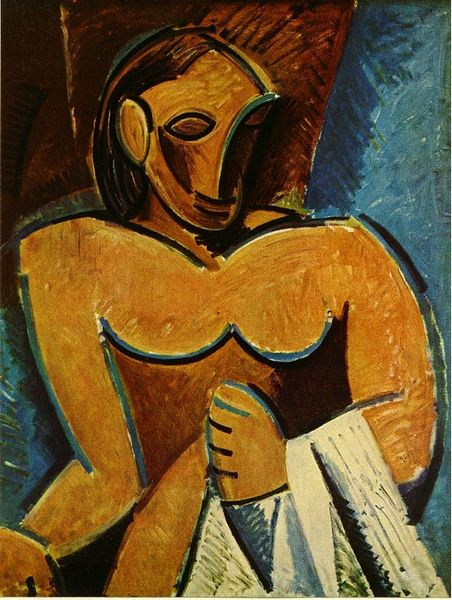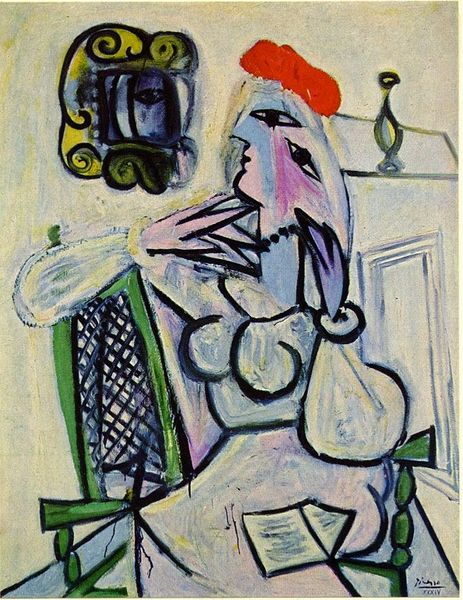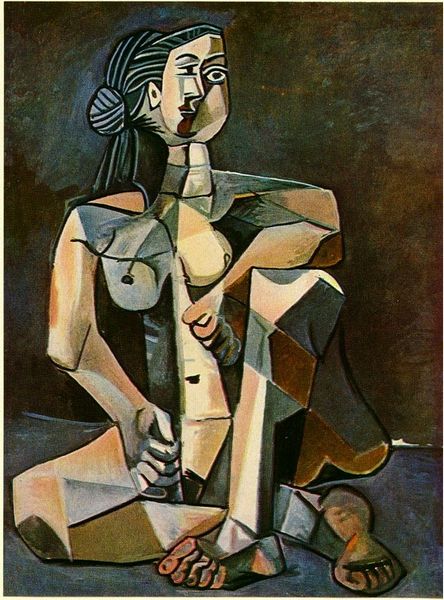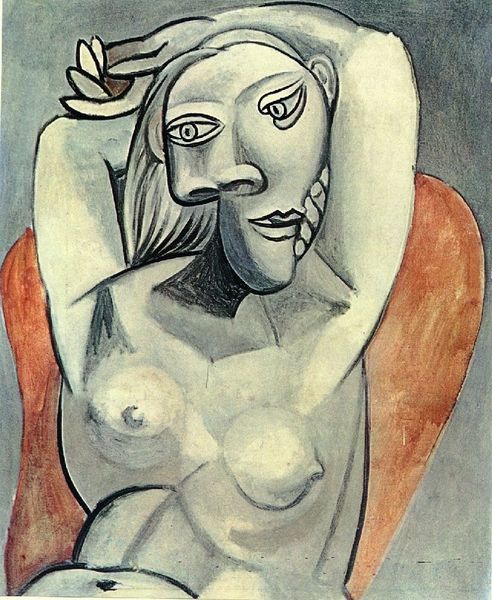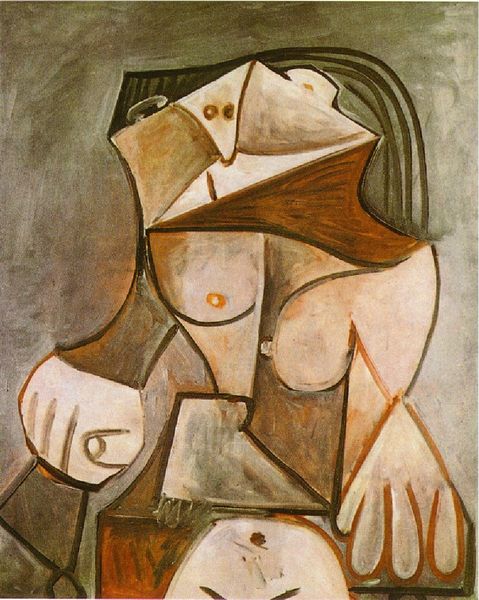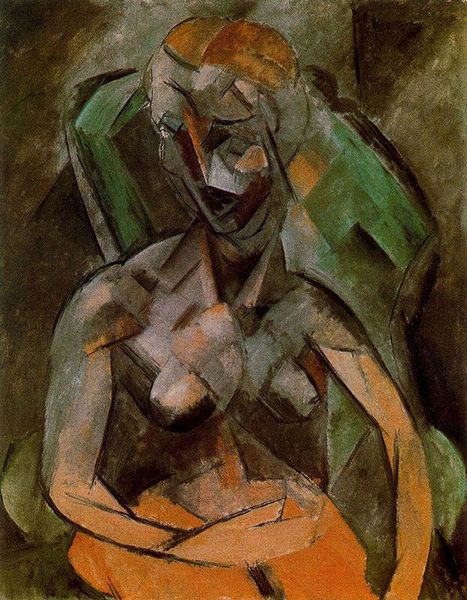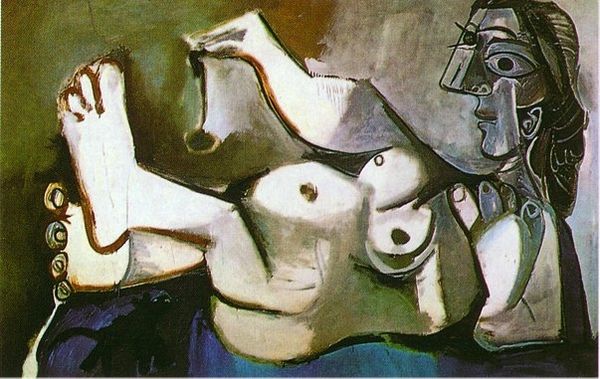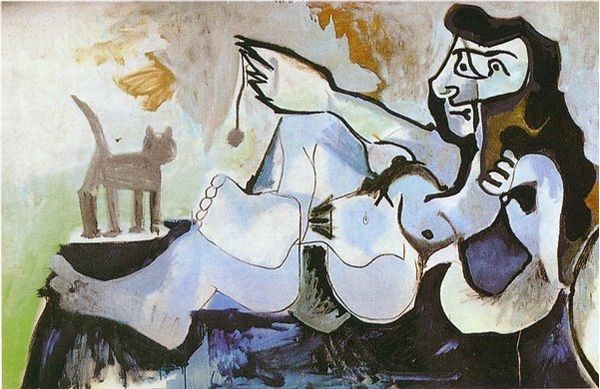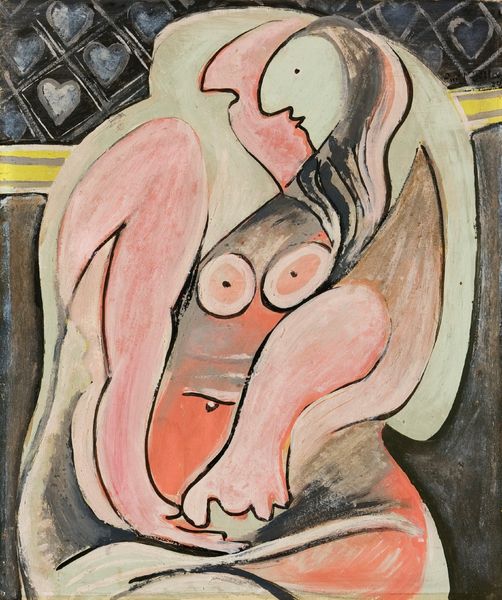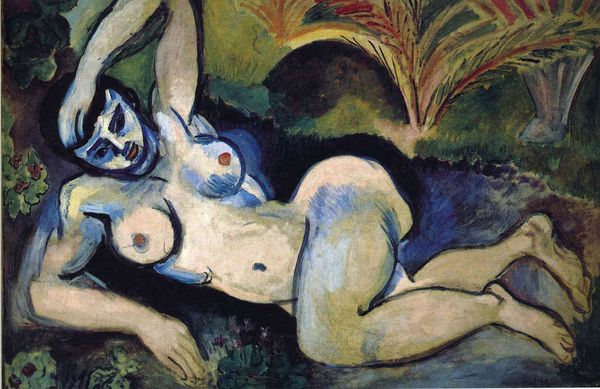
painting, oil-paint
#
portrait
#
cubism
#
painting
#
oil-paint
#
pop art
#
female-nude
#
famous-people
#
acrylic on canvas
#
nude
#
portrait art
#
modernism
Dimensions: 130.2 x 97.2 cm
Copyright: Pablo Picasso,Fair Use
Curator: Welcome. Here at the Tate Modern, we are delighted to present to you Pablo Picasso’s "Female nude sitting in red armchair," painted in 1932. Editor: The color is striking—such vibrant reds against the muted flesh tones create a peculiar kind of tension. It makes me feel uneasy, but also quite intrigued. Curator: Unease is an interesting word choice. Considering the historical context, 1932 was a year of immense personal change for Picasso. This work epitomizes his evolving relationship with Marie-Thérèse Walter and can be viewed as situating her within broader patriarchal power dynamics. The curves and distortions can be interpreted as representations of desire and objectification, reflecting the complex negotiations of gender and power. Editor: It's all about the oil paint! The visible brushstrokes add a crucial textural element, underscoring the constructed nature of the image. Picasso isn’t just painting a nude; he’s showcasing the very act of painting, calling attention to the material process behind image-making. The lines that define her figure are clearly articulated, and this makes one aware of the artist’s hand—the artist’s labor, one might say. The labor itself adds layers to the subject and the overall artwork. Curator: Yes, but those brushstrokes also serve to further fragment the female form, reducing her to abstracted shapes. Consider this: she is simultaneously idealized, placed on a pedestal, and reduced to a set of body parts viewed and put together to serve his desires. Editor: Precisely. And, further to my point: that complex interaction, which of course relies on physical manipulation, the careful arrangement of material pigment... Curator: Agreed. It invites us to examine not only what is represented, but how that representation came to be and who gets to be represented, but this is an excellent artwork through which we see identity and artistic making as linked processes in this artist's career. Editor: Indeed, food for thought when we reconsider modern nudes, from conception to material actualization.
Comments
No comments
Be the first to comment and join the conversation on the ultimate creative platform.
